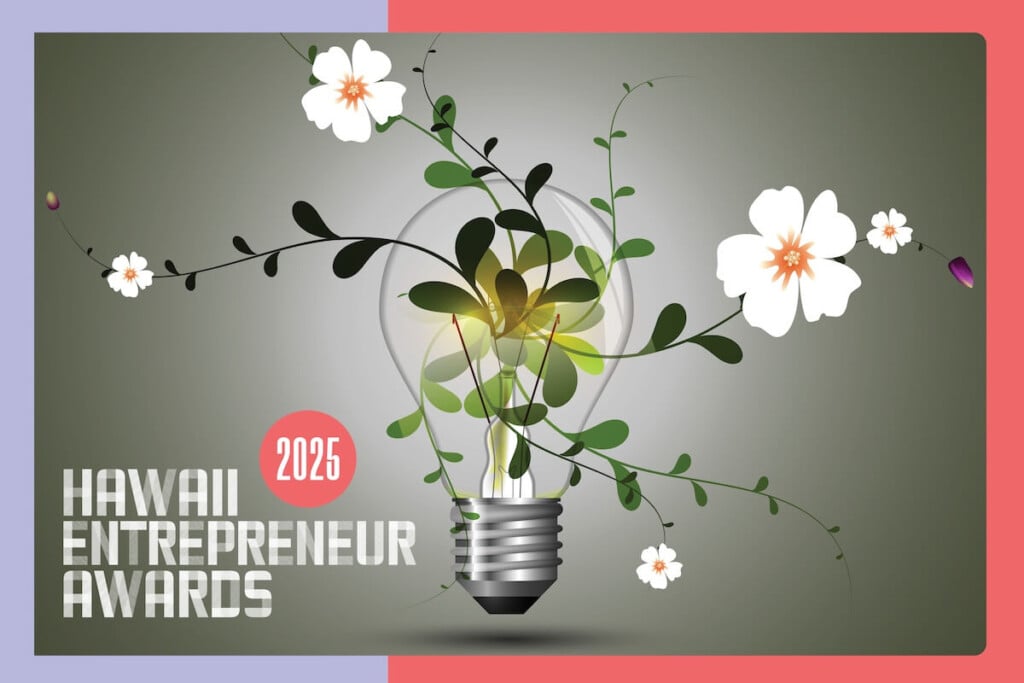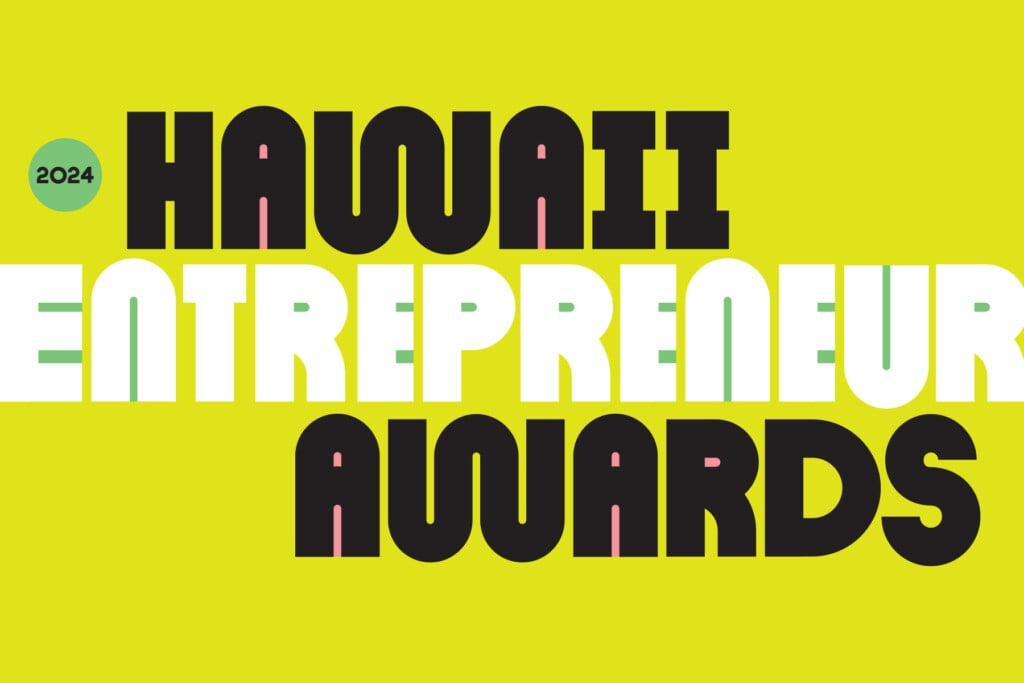Skai Ventures: Strategies for Takeoff
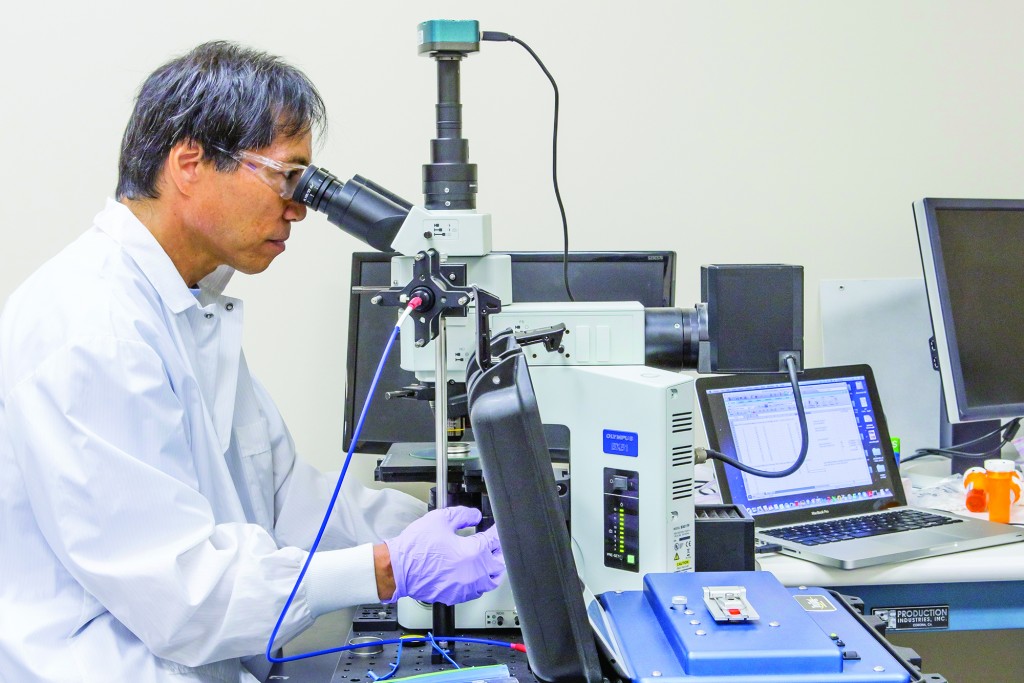
FitGoFun: Sprinting to the Marketplace
Unencumbered by FDA hurdles or the need for regulatory approvals, FitGoFun is a startup that has evolved from concept to sales in months, not years.
Every summer, a select group of brainy, creative students takes part in the Skai Ventures Youth Innovator Program. They come from near and far for the chance to work with scientists, CEOs and business leaders in an innovative tech environment. One of those students, in 2010, was Punahou grad Chris Wong, who interned at Skai between his studies at Occidental College and Columbia University.
Wong had the chance to try his hand at product formulation, market research and field-testing. Three years and two degrees later, he spent a year as entrepreneur in residence for Skai with the charge from Wuh to find, assess or create scalable solutions to big problems.
In the course of that remarkable opportunity, Wong came up with the concept of embedding healthcare into entertainment. The Institute for Health Metrics and Evaluation estimates that 30 percent of the world’s population is obese or overweight, a situation that has companies looking for ways to keep healthcare costs in check and individuals seeking ways to exercise more and eat better – and to stick with both by having fun in the process.
That idea was the genesis of FitGoFun, co-founded by Wong and Wuh. Eight months later, the new venture has both investors and customers on board. Between classes at the John A. Burns School of Medicine, where he is now a first-year student, Chris Wong hangs up his lab coat, puts on his entrepreneur’s hat and devotes himself to the company’s impending launch.
Wuh knows that good ideas need the right people to turn them into reality and has scoured the world to find the most creative and inventive talents. For FitGoFun, he made several trips to Silicon Valley to recruit John Lee to become the company’s president. Lee is a rock star in the gaming industry, who says he has helped launched seven Game-of-the-Year products over the past two decades.
Lee says he chose to devote his talents to FitGoFun because he understood why most healthcare applications fail: They merely collect data and don’t incentivize people for long. Lee says he and his team of developers have come up with game mechanics that get people moving and encourage them to stick with it by rewarding them for progress.
Trend watchers predict that one of the hottest gifts this holiday season will be wearable mobile devices. By Jan. 1, 2015, the FitGoFun team expects its apps will be widely downloaded by people whose New Year’s resolutions include getting into better shape.
The team is working feverishly to develop a platform that allows players using different types of wearable devices to play together. Lee and his team are living and breathing FitGoFun – eating, sleeping, inventing and iterating from a communal setting reminiscent of scenes from “The Social Network.” For them, games are serious business – and big business, too. Lee’s ambition for the company is “to become the Netflix of this space, the industry leader in health gaming.”
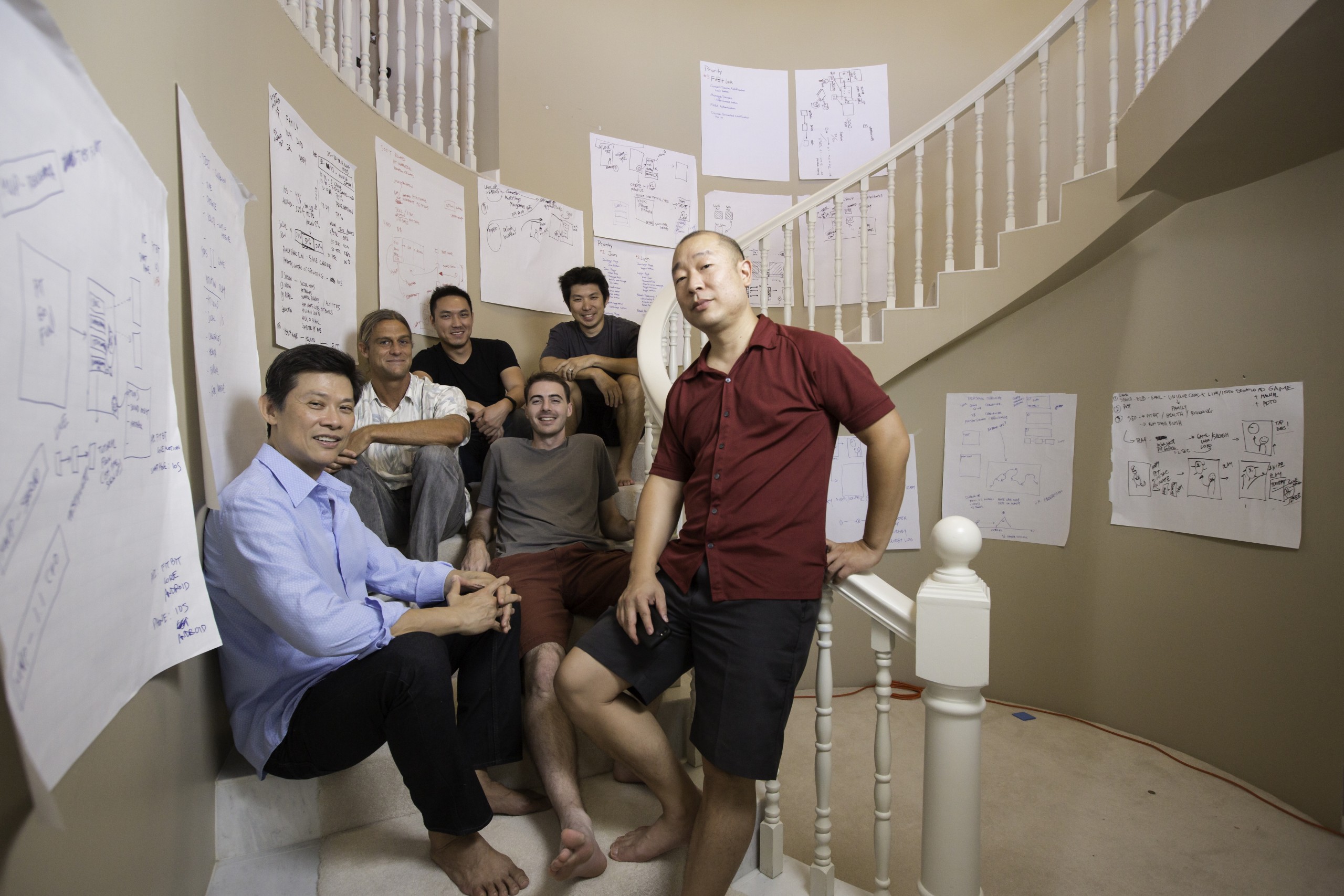
PHOTO: DAVID CROXFORD
That games have proven to hold people’s attention and influence behavior has not gone unnoticed. Healthcare providers, insurance companies and businesses are looking for ways to improve the well-being of their members and employees while improving their own bottom lines.
Allen Uyeda, recently retired after two decades as CEO of First Insurance Co. of Hawaii, is intrigued: “Games are very sticky; they’re a great way of getting people motivated about their own health.” He thinks FitGoFun’s apps are “a viable way to help tackle a major social issue.” And, at a state level, Uyeda sees this type of business as a welcome diversification beyond the military and visitor industries that could spur economic growth in the Islands.
Hawaii: A Surprisingly Good Place to Launch
Distance from collaborators and customers, a small pool of professionals with relevant talent and a limit to available capital are well-known challenges to working in Hawaii. Add to that list a cultural aversion to risk taking, Wuh says. “Failure is not looked upon with great acceptance here,” he explains, “but the very high-risk, high-return nature of startups is a way of life.” He sees things changing in the community, and is not alone in recognizing that there are many benefits to working in the middle of the Pacific.
“We think that Hawai‘i is a great place to start,” says Lee. “ A lot of our initial customers are here and we can directly interface with them. If we can solve it here, we can scale it nationally.” Besides, he notes, working beyond the prying eyes of Silicon Valley “is not a bad thing.” On a personal level, Lee would like to make this his home. He’s connecting with the local startup community and figures, “If I can’t find what I’m looking for here, I can find people to help build it.”
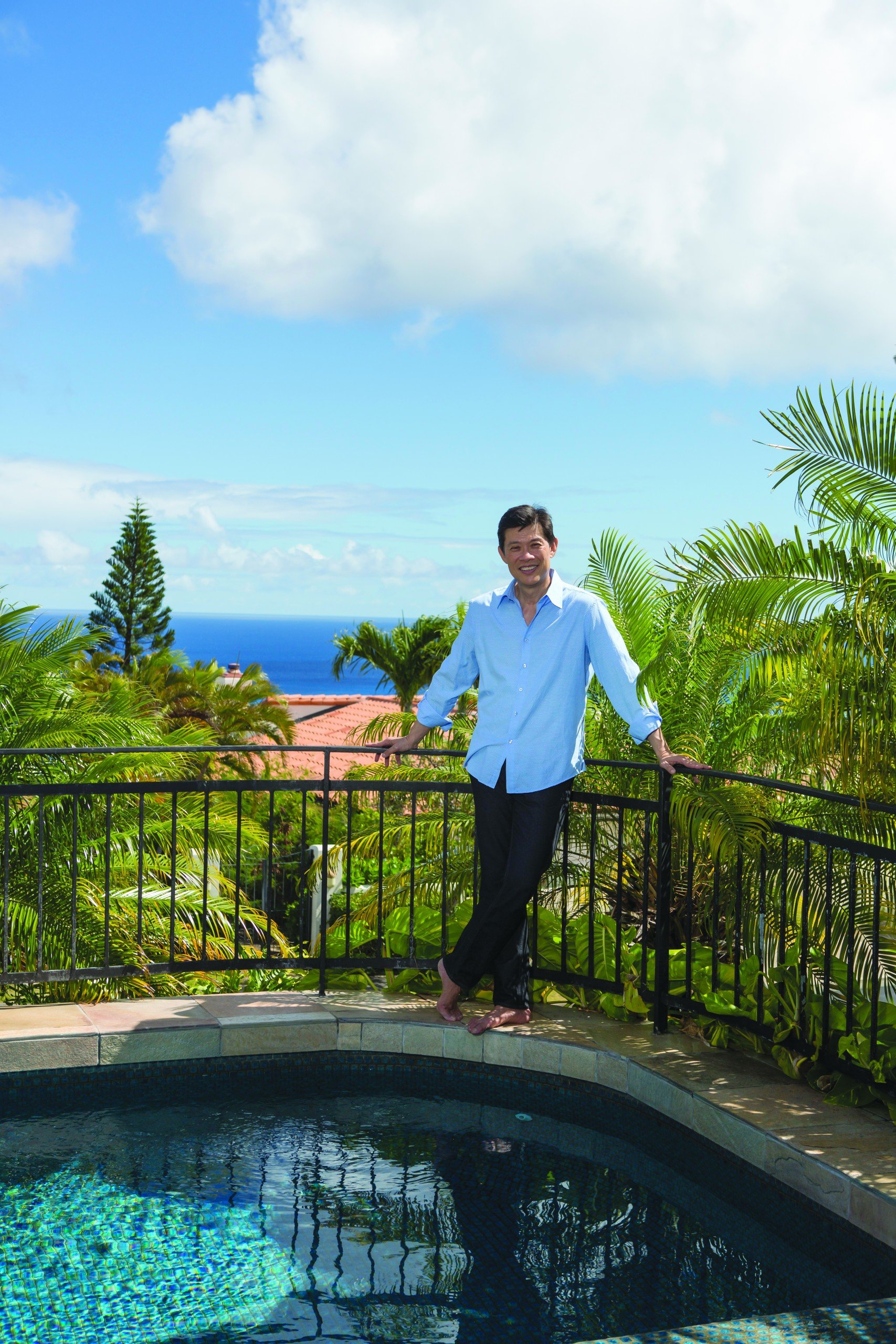
PHOTO: DAVID CROXFORD
TruTag’s O’Neill was surprised to find out about the entrepreneurial activity already underway in Hawaii when he was in town for a conference in 2006; a great deal had changed since he had lived here as a 20-year-old during his Navy days. “Instead of thinking about returning to Hawaii someday when I was ready to retire,” O’Neill says, “I decided to get here sooner and immerse myself in the innovative work underway.”
All of Skai’s businesses are running with a combination of local and imported talent, and it seems that all those from elsewhere are hoping to stay and thrive.
For now, Hank Wuh is much more focused on taking Skai’s existing products further than he is on adding new businesses to the portfolio. Part of creating each of the ventures includes a plan – however distant – for its exit. What begins as an idea that could vastly improve people’s health, and which needs technology that doesn’t yet exist in order to work, ends with Wuh’s double-bottom-line measure of success: “Make the world a better place … and deliver a fantastic return.”

